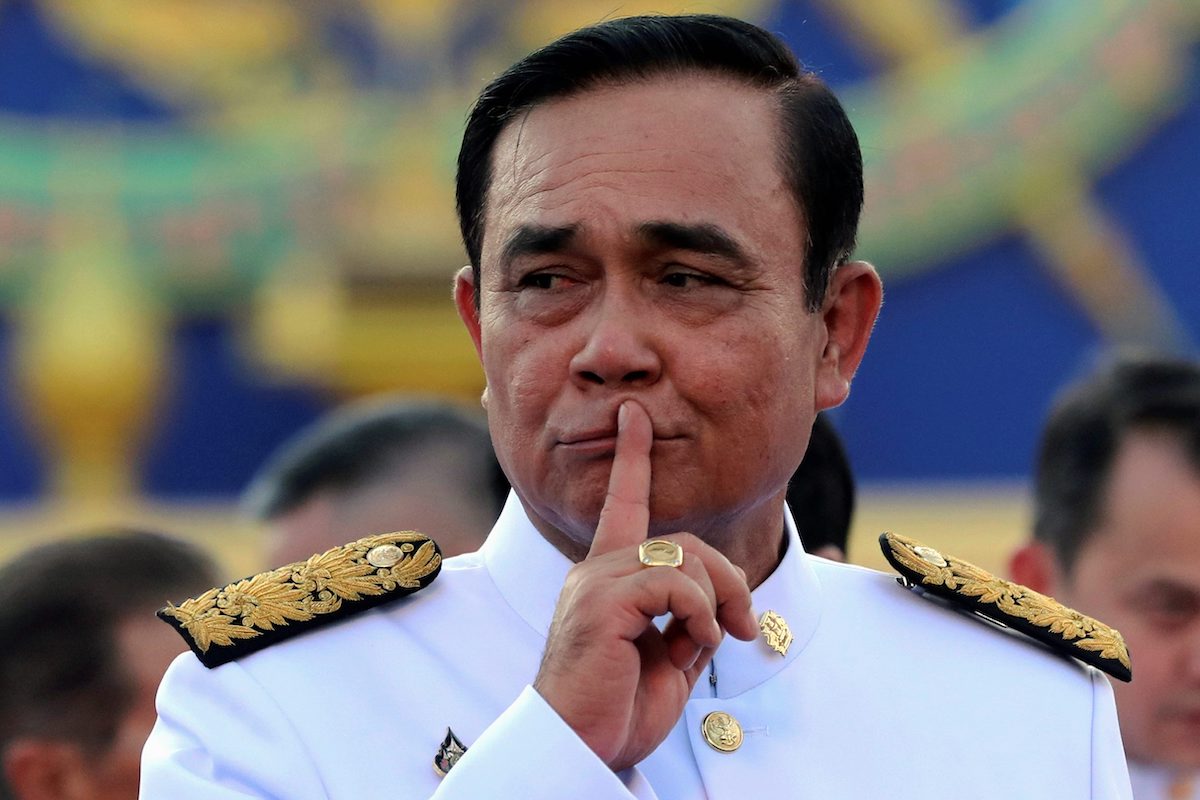On Friday, the Constitutional Court ruled in favour of Prime Minister Gen. Prayut Chan-o-cha, affirming his eligibility to remain in office more than eight years after he took power in a military coup.
Despite the fact that the current constitution allows a prime minister to remain in office for longer than a year, the court ruled in a 6-3 decision that the constitution took effect on April 6, 2017, and that his term of office should begin on that date. People’s frustration with his prolonged rule is sure to grow in the wake of this verdict. Anti-government demonstrators are already converging on central Bangkok.
Therefore, General Prayut may remain in office until 2025, provided he agrees to stand for re-election by parliament following the general election anticipated for the first half of next year.
Prayuth was appointed prime minister in a military government in August 2014 and was re-elected in a 2019 election. He would have reached his legal limit last month if he had started in 2014.
Three of the court’s nine justices read the ruling while Prime Minister Prayut was at his home on the Vibhavadi Rangsit highway, which is at the Royal Guards’ First Infantry Regiment.
“I’d like to express my deep respect for the Constitutional Court’s decision, and I’d like to thank all members of the public for their encouragement and best wishes,” Prayut wrote on his official Facebook account, with the comment section turned off.
“I want to use this government’s precious limited time to follow up on and drive forwards important projects that I have started, so that they can move forwards towards completion, building progress for the country and a future for our children,” he wrote.
According to a government source, Gen. Prayut will resume his duties as prime minister on Monday at Government House. His first task will be to preside over a teleconference meeting of provincial governors across the country to discuss flood relief measures in several provinces.
The court’s decision was widely anticipated because it has consistently ruled in favour of the government in a series of political cases. The judiciary, particularly the Constitutional Court, and the military are staunch supporters of the country’s conservative establishment, the monarchy being its most important pillar.
However, Prayuth will face a political reckoning early next year when Parliament’s four-year term expires and a new election is required. Critics claim that he has failed to manage the economy and that Thailand’s initial response to the COVID-19 pandemic was a disaster.
According to the Bangkok Post, Amporn Promkerd, a lecturer at Khon Kaen University’s faculty of humanities and social sciences, even though Gen. Prayut has been granted the mandate to remain in power at least until early to mid-next year, he will likely face growing opposition and pressure from his critics.
The Pheu Thai Party said in a statement on Friday that it disagreed with the court’s decision and that a cabinet formed before the current 2017 charter went into effect is still a legal and valid cabinet.
Thailand’s traditional conservative ruling class, including the military, saw Thaksin’s popularity as a threat to both the monarchy and their own power. The courts have always been staunch defenders of the status quo, ruling against Thaksin and others who have attempted to change things.



